The sun is the same in a relative way, but you’re older
Shorter of breath and one day closer to death—Roger Waters, “Time”
Throughout the endless winter here in Michigan’s Upper Peninsula, I play hockey several times a week with two groups of battle-scarred and weathered warriors: The Copper Country Coasters and the NHL. One group’s name is a double entendre tribute to Lake Superior’s anadromous brook trout. The other is an abbreviation for the Nursing Home League. At sixty-two, I’m an elder among the swarm of Generation Xers on the Coasters’ roster, but the Silent Generation and Boomers in the NHL still call me “kid.”
One of the NHL’s octogenarians is eighty-five or eighty-six, depending on whom you ask. He recently had cataract surgery on both eyes by an ophthalmologist in the nearby metropolis of Marquette. The big city doc told his patient he could resume normal activities after a successful follow-up exam. So, a week later, when good old Harold’s eye doctor here in Houghton said everything looked fine, the NHL’s craftiest defenseman said, “Great, that means I can play hockey tomorrow, right?” Evidently, university-trained optometrists—even in hockey-crazed regions like the Copper Country—don’t consider hockey a normal activity, especially for people born during Franklin D. Roosevelt’s presidency. Naturally, Harold growled at the kid’s answer.
Like Harold, many of us don’t like all the consequences of having had so many birthdays. But we adapt much the way a bamboo rod prefers to bend rather than break. When we’re young, we don’t worry about sliding down a steep bank and hearing our fibula or tibia snap, crackle, and pop like a Ponderosa pine branch in a roaring campfire. But when Father Time decides to blur our view of hook eyes, whispy tippets, and tiny tufts of fur and feathers floating any farther away than two or three rod-lengths, he also gifts us the optical acuity to see skin tags, ear hairs, and every possible way we might trip, slip, or otherwise tumble ass over teakettle and straight into three weeks of traction. You see, the good Father likes his irony as thick as the sun-blocking paste we spread on the parts of our noses and ears the dermatologists haven’t yet cut or burned away.
More Like This
The last week of May is a period of rebirth for aging anglers here in the Upper Peninsula. The rivers’ waistlines have receded from their snow-melt bloats, and the mayflies, caddisflies, and stoneflies are ready and randy for their end-of-life orgies. In response, the trout become as bubbly as a bear in a beehive, prompting us to straighten our leaders, grease our lines, and tie on what we believe will be the season’s can’t-miss flies.
As I’ve done for over a decade, I spend that week in a rickety cabin alongside the Escanaba River, where several old friends bounce in and out while I’m there. The cabin is empty from roughly October until late May, other than the bats, bugs, mice, and snakes that foist some sort of squatter’s rights on the place. At least one mouse always makes the fatal mistake of building a home in the insulation between the oven and the outer shell of a cooking range that could have been a prop for “Leave It to Beaver” or “Father Knows Best.” By the time we’re ready to make our first pizza, the dead mouse has mostly decomposed, but the intense heat releases a horrendous odor that one of my guests attributes to the rodent’s urine. Unconcerned about the correctness of his claim, we execute an annual ritual of turning on the oven, opening every door and window, and retreating to the river for cigars and drinks while waiting for the stench of death to burn away. Then we celebrate with what we call the first “mouse-piss-pizza” of the season.
Tom McGuane has noted that some anglers believe you shouldn’t use a wading staff until you’ve had your first heart attack, and many stubborn seniors subscribe to some version of this dictum. But my friend, the physical therapist, isn’t one of those. In his twenties, he was in a traveling rock band of the big-hair, tight-pants type, where guitarists leaping in the air and jumping off the stage were expected behaviors by the audience—but not by the musicians’ knees. Forty years later, two new titanium joints demand the assistance of a staff, so the physical therapist uses one carved from sturdy oak.
“I waded out to the mouth of the creek tonight. With the staff, it was like a walk in the park,” he tells me between bites of a barbeque chicken-flavored mouse-piss-pizza.
“How’d you do?” I ask.
“Great! My last fish of the night took me into my backing, but I landed it after a fight that seemed to go on forever.”
“How big was it?”
“I’m not sure, but I notched its length on my wading staff so we can measure it.”
Twenty inches, it turned out, assuming he used his good eye and a steady hand to make the notch.
The materials scientist took up fly fishing late in life, several decades after emigrating from Poland to the United States. He’s a crafty spin fisherman, but he’s still developing his skills at casting and catching fish with a fly rod. I try to mentor him, but he withholds some trust due to a mild misunderstanding several years ago.
“Can you recommend a good place to go for trout fishing?” he once asked.
“Sure, I’ll send you to one of my secret places if you promise to keep it a secret,” I said.
“Yes, of course I will.”
I saw him a week or two later and asked how it went.
“I tell you this, Tim, your place is so secret, even trout don’t know about it.”
Since then, he’s acquired a fine bamboo rod that he’s used to land several nice fish. At the cabin, he expresses vehement opposition to mouse-piss-pizza and prefers dishes like homemade goulash and Polish-style sandwiches with tomatoes and radishes fresh from his garden. As it is for many elder statesmen and women, tying a fly on a tiny tippet in a low-light fog of mosquitoes is somewhere between a root canal and a twenty-minute accordion solo on the list of things the materials scientist enjoys. So he leaves the river a little earlier in the evening each year. “Fish will be there tomorrow,” he tells us.
The social worker is another newcomer to the sport, and like the materials scientist, he’s jumped all in. He lost his wife to cancer several years ago, and fly fishing is one of the ways he’s kept on keeping on. He once caught a nice fish by dragging his fly downstream in the current, so despite all my nudging, he reverts to that method when the fishing is slow. He asked me to teach his son a little about fly fishing one year, and when we got started on the river, I asked if his dad had taught him anything about the sport.
“Yeah, he’s taken me out a few times.”
“Okay then, we’ll have to undo most of what he taught you,” I said.
“Hey, I can hear you!” the social worker yelled from his position a little downstream.
Despite being in his late 60s, the social worker is in great physical shape and doesn’t see himself as the sort of man who needs a wading staff or any other type of crutch. So, despite all my warnings about the dangerous places to wade, he returns to the cabin early at least one evening each season to change into dry clothes, drain the water from his waders, and warm up by eating a cheap, gas-station mouse-piss-pizza covered with enough anchovies to attract every seagull in Delta County.
Although he once had an epic night with a single oversized Royal Wolff, the physicist has never been a good fly angler. Not for a lack of enthusiasm—no one has ever loved it more. He just hasn’t fished enough. A few years ago, I noticed how he struggled to cross the river. More than the struggles the rest of us had accumulated and far more than a man with his bone, muscle, and gristle stature should. Within a year, he told us he had Parkinson’s disease. Although he’d have to hang up his skates, he said he’d keep coming to fish camp in May. And he has.
To paraphrase Jim Harrison, time steals everything except our stories. I worry too much about time and how it might one day take the skates from my feet, the rod from my hand, and hide my keys where I can’t find them. But then I think about Harold stealing the puck from me with his newfound young man’s eyes, about the physical therapist defying time with his magic walking stick, about the materials scientist learning to cast better at sixty-six than he did at sixty-five, about the social worker teetering on the edge of Shea’s Hole, but not falling in this time, and finally, about the physicist sitting on a bench beside the river with a cup of fourteen-year-old Glenmorangie in one hand and a cheap Swisher Sweet cigar in the other, telling me that, despite his wife’s and doctor’s dictates, he’s about to pull on his waders and catch that trout. Time is what we make of it.







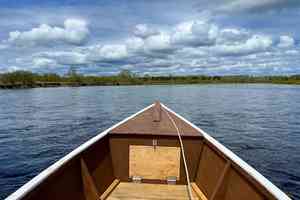




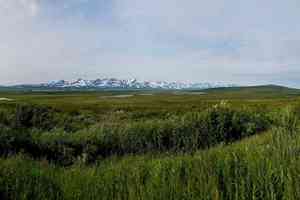


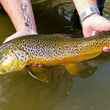
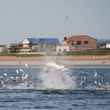




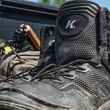





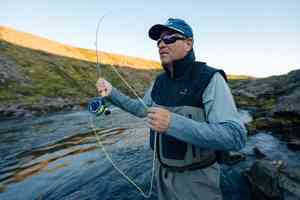

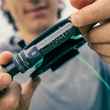


Comments